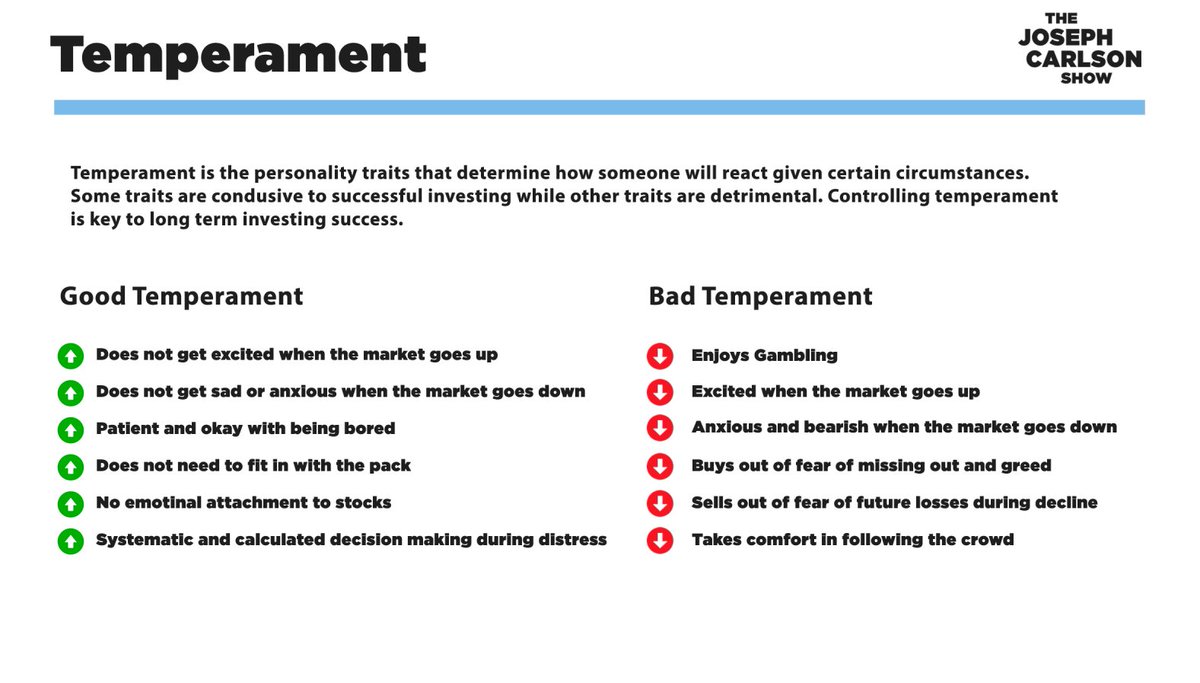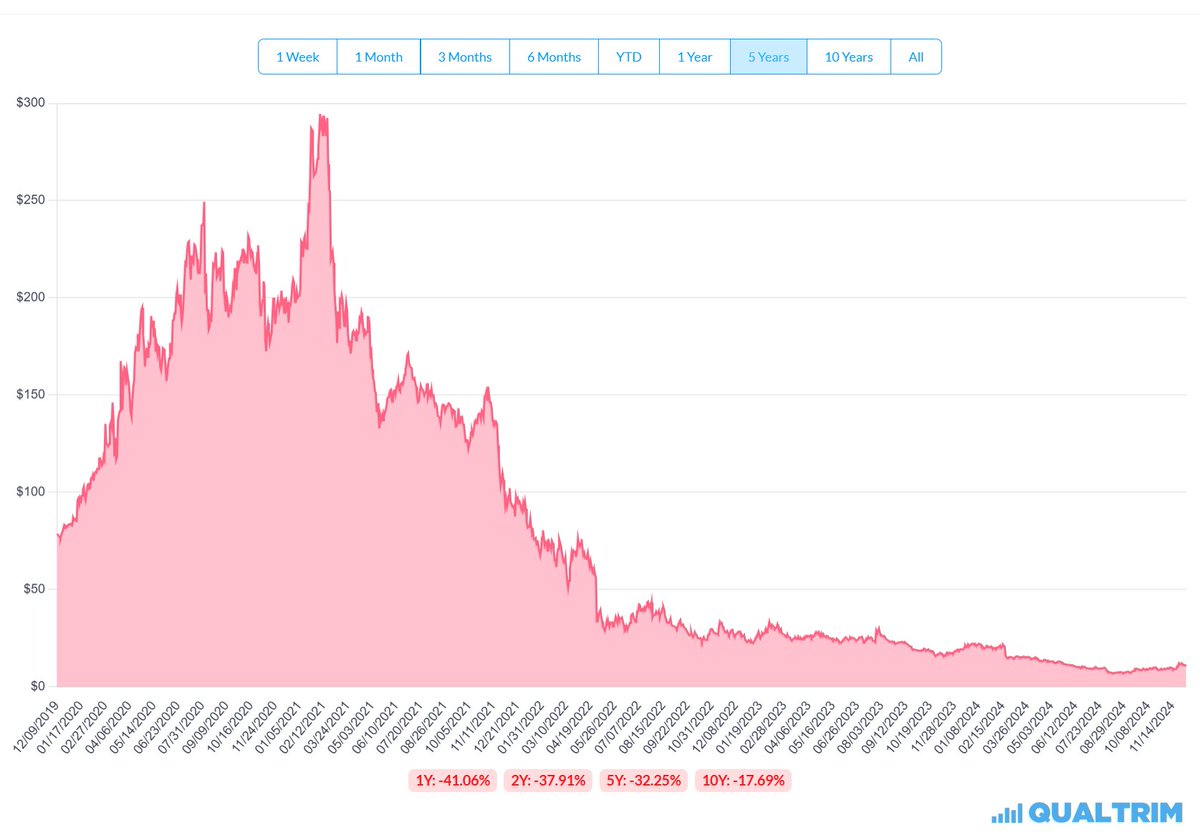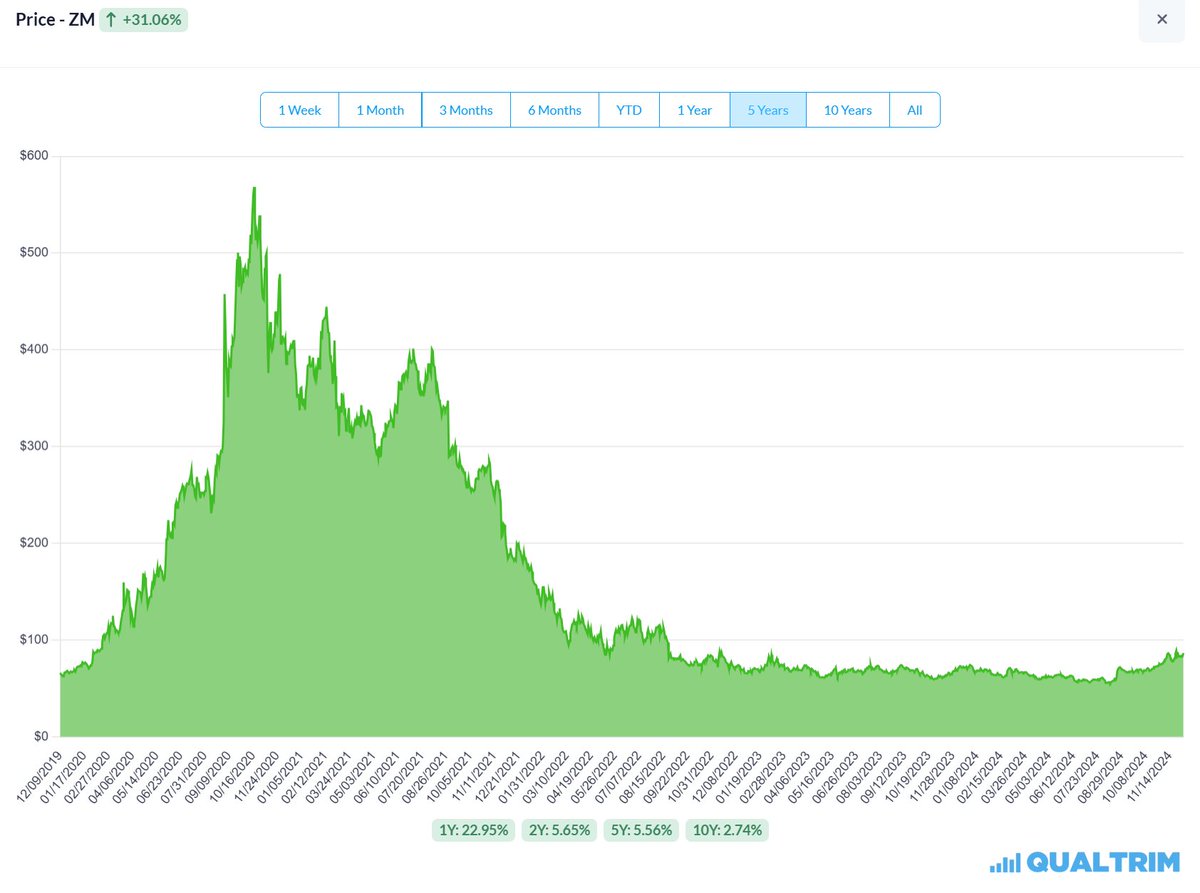The term "compounder" is thrown around a lot. But what does it mean?
I learned from the investing philosophies of Buffett, Munger, and others to boil down what I believe is the best overview of what a Compounding Machine actually is, and how to invest in them.
These 8 slides go over my Investing Philosophy
I learned from the investing philosophies of Buffett, Munger, and others to boil down what I believe is the best overview of what a Compounding Machine actually is, and how to invest in them.
These 8 slides go over my Investing Philosophy

Compounders are highly predictable money making machines. They are defined by their many attractive attributes and lack of unattractive attributes 

Compounding Machines organically grow revenue by repeatable and predictable investments in their core business. They don't rely on large, lumpy acquisitions for growth. 

Compounding Machines grow free cash on a per share basis above 10% per year. Their line of growth is steady and predictable. 

Compounding Machines reduce the share count over time. Most compounders do this on a steady cadence, which helps grow their free cash flow per share. 

The intrinsic value of Compounders increases as they grow organic revenue, free cash flow per share, and their predictability improves (which means their moat is improving). The share price will follow the intrinsic value. Compounding Machines should always be improving intrinsic value.

I manage my portfolio of Compounding Machines by having well-defined guidelines of when I buy and when I sell. The goal is to hold these companies well and reduce the number of trades and taxes associated with trading. If you buy the right companies, you should rarely sell at a loss.

• • •
Missing some Tweet in this thread? You can try to
force a refresh












